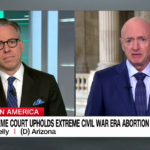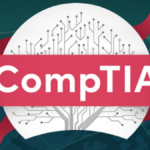
Emergency power outages in Zaporizhzhia

Ukraine will be key topic in Biden’s White House meeting with Macron Thursday
From CNN’s DJ Judd
Challenges posed by Russia’s invasion of Ukraine will be “front and center” Thursday when US President Joe Biden welcomes French President Emmanuel Macron to the White House for his administration’s first official state visit, a senior administration official told reporters Monday.
Macron will hold a bilateral meeting with Biden at 10 a.m. ET and a joint news conference at 11:45 a.m. ET.
Macron’s visit serves “as an opportunity to highlight a foundational component of the administration’s approach to foreign policy, strengthening our alliances,” the official said, who also noted that France’s status as the United States’ oldest ally made it “fitting” that the nation was the first to receive a state visit. Former President Donald Trump also hosted Macron for his first state visit.
Russia’s continued attacks on civilian and energy infrastructure in Ukraine are likely to loom large during the meetings between the two leaders, with focus on the “numerous diplomatic and global coordination efforts that are underway in terms of responding to what really is a critical need of the Ukrainians right now,” the official said Monday.
The administration is expecting the two “to continue discussing ways that they can support Ukraine – not only in terms of its energy security needs, but also with security assistance means, humanitarian assistance, budgetary support, and the full range of areas in which the United States, France and the rest of our allies and partners are continuing to support Ukraine,” the official said.
Read more about Macron’s visit here.
It’s mid-afternoon in Kyiv. Here’s what you need to know
From CNN staff
Russian strikes continue to impact the power supply across Ukraine, with shelling leaving the southern city of Kherson without electricity on Thursday. Meanwhile, a letter bomb that injured a worker at the Ukrainian embassy in Madrid, Spain, is one of a series that have now been discovered in the past week.
These are the latest headlines:
Russian shelling leaves Kherson without electricity: The recently liberated city of Kherson in southern Ukraine is without power in the wake of heavy Russian shelling. Energy company Khersonoblenergo is “already working to fix the problem,” said local official Yaroslav Yanushevych.
Outages in Zaporizhzhia: Emergency power outages have been imposed in Ukraine’s southern Zaporizhzhia region on Thursday, according to state-owned energy provider Ukrenergo. A statement from the company said the move was due to “significant exceeding of electricity consumption” in the region. Power would be restored when “consumption stabilizes,” it added.
Kyiv power supply cuts in the interests of fairness: Some 750 residential buildings across the Ukrainian capital that have enjoyed continuous electricity during power outages will now have their supply cut to “ensure fair and equal conditions,” according to a local energy provider.
Spate of letter bombs: A series of letter bombs have been sent to various offices in Spain, including one which exploded at the Ukrainian Embassy in Madrid Wednesday afternoon, injuring an employee. This follows a letter bomb addressed to Spanish Prime Minister Pedro Sanchez which was delivered on November 24.
UK sanctions more Russian officials: The United Kingdom has sanctioned another 22 Russian officials for aiding Russia’s war on Ukraine, UK Foreign Secretary James Cleverly announced Wednesday. In total, London has now sanctioned more than 1,200 individuals and 120 entities over the invasion, according to a UK Foreign Office press release.
Spain steps up security after spate of letter bombs, including one that exploded at Ukrainian embassy
From CNN’s Al Goodman in Madrid and Eve Brennan in London
Spain said Thursday it was boosting security measures after a series of letter bombs was discovered in the country, including one that was sent to Spain’s prime minister last week.
The latest bomb, sent to an air force base near Madrid, was discovered before dawn Thursday, after one exploded at the Ukrainian embassy in the capital Madrid Wednesday, injuring a member of staff, and another was deactivated at an arms manufacturer.
The device addressed to Prime Minister Pedro Sanchez arrived in the post at his official Moncloa compound on November 24 and his security detail singled it out as suspicious.
After establishing a security perimeter, they conducted a “controlled explosion” of the envelope, an interior ministry statement said.
The bomb “would be similar, for its features and content” to those received on Wednesday at the Ukrainian embassy in Madrid and at the arms manufacturer Instalaza in Zaragoza, and on Thursday at Spain’s Torrejon air force base near Madrid, the statement said.
The most recent letter bomb was intercepted just before dawn Thursday after being sent to the Torrejon air force base.
The letters were likely sent from Spanish territory, said Secretary of State for Security Rafael Perez on Thursday.
A sixth envelope: A new envelope with features similar to the five previously detected “incendiary envelopes” was intercepted around 12:30 p.m. local time at the security post of the US Embassy in Madrid, a police source told CNN. A special protocol was activated for these cases, the source added.
A suspicious package was received at the embassy in Madrid on Thursday, according to spokesperson Jamie Martin. “We are grateful to Spanish law enforcement for their assistance with this matter,” Martin added.
Both Perez and Interior Minister Fernando Grande Marlaska, who later spoke separately with reporters, said that people should remain “calm.”
Perez went on to say that there are not enough reasons to justify raising a terror threat just yet.
Marlaska told reporters that he could not provide any further details.
Read more here.
CNN’s Pau Mosquera contributed reporting to this post.
Hundreds of Kyiv buildings that have had constant power will now be restricted to ensure fairness
From CNN’s Olga Voitovych
Some 750 Kyiv residential buildings that have enjoyed continuous electricity during power outages will now have their supply cut to “ensure fair and equal conditions,” according to a local energy provider.
Around 1,500 buildings in total are connected to the same supply lines “as critical infrastructure facilities” including pumping stations, boiler stations and hospitals, said DTEK, Ukraine’s largest private energy provider, on Thursday.
Power has been rationed in Kyiv as a result of persistent targeting of energy infrastructure by Russian strikes.
DTEK said that 750 of those residential buildings (out of a total 1,497) will now have their supplies cut in the interests of fairness.
The company has been carrying out “extensive technical work to optimize the power supply scheme for critical infrastructure and, where possible, created an alternative scheme for residential buildings,” meaning they can now apply “emergency or stabilization outages to them,” it said.
The remaining 747 buildings will remain connected to the same supply lines because DTEK “cannot change the current electricity supply scheme due to the technical characteristics of the network.”
DTEK is working with city authorities, housing cooperatives and management companies to “apply stabilisation or emergency outages to these houses,” it added.
UK adds 22 Russian officials to sanctions list
From CNN’s Eve Brennan
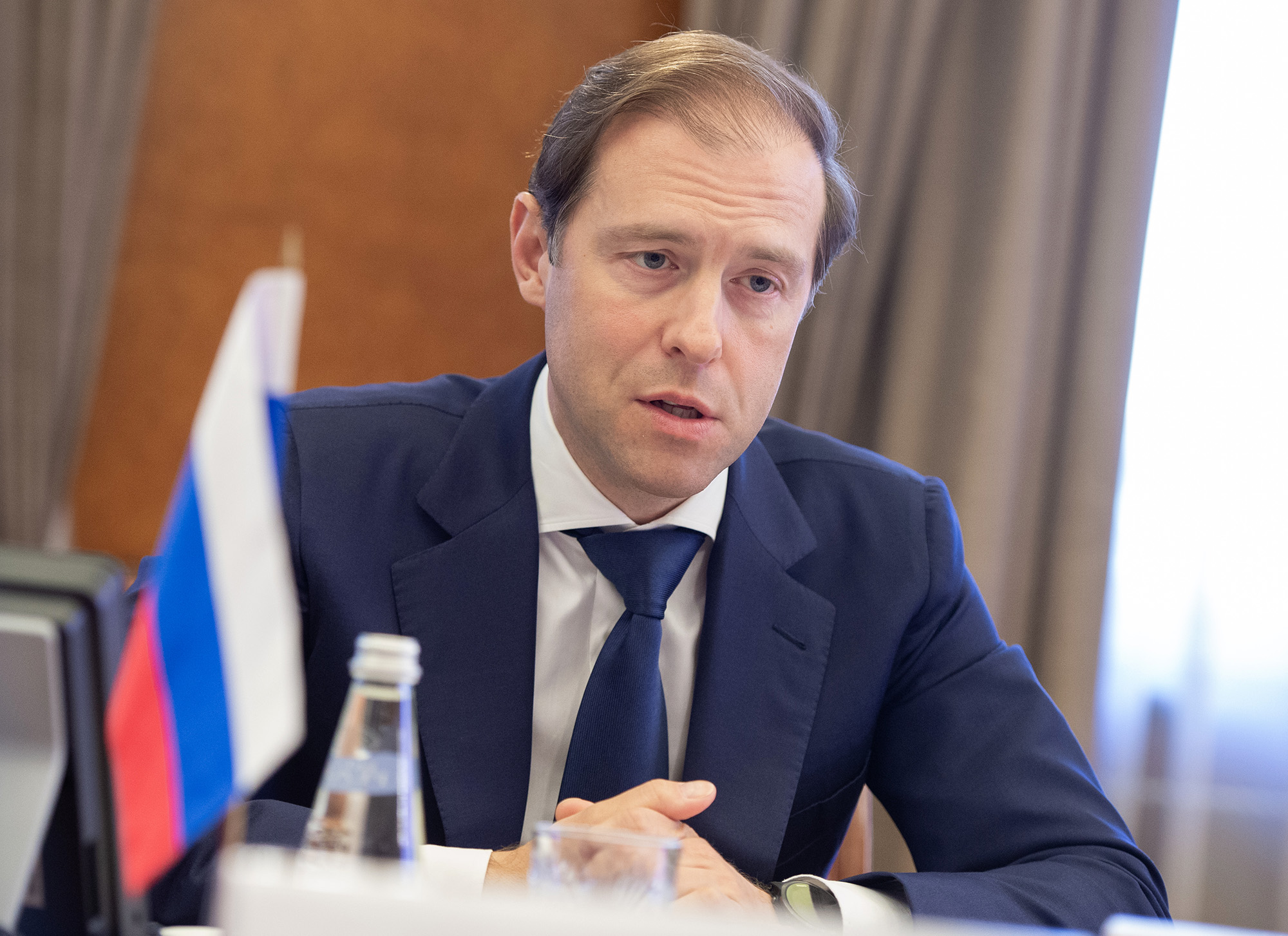
The United Kingdom has sanctioned another 22 Russian officials for aiding Russia’s war on Ukraine, UK Foreign Secretary James Cleverly announced Wednesday.
In total, London has now sanctioned more than 1,200 individuals and 120 entities over Russian President Vladimir Putin’s invasion of Ukraine, according to a UK Foreign Office press release.
The new package of sanctions includes Deputy Prime Minister Denis Valentinovich Manturov who, according to the press release, “is responsible for overseeing the Russian weapons industry and responsible for equipping mobilised troops.”
Ten governors and regional leaders have also been sanctioned, including the heads of “some of Russia’s poorest ethnic republics,” Dagestan, Ingushetia and Kalmykia, “from which a significant number of conscripts have been drawn,” said the Foreign Office.
Arkady Gostev, director of the Federal Penitentiary Service of the Russian Federation, and Dmitry Bezrukikh, the head of the Federal Punishment Service of the Rostov region, have also been sanctioned.
According to the release, Gostev and Bezrukikh have reportedly worked closely with Yevgeny Prigozhin, head of the Wagner Group, a Russian private military group that has been heavily involved in fighting in Ukraine.
Ella Pamfilova, chairperson of the Central Election Commission and Andrey Burov, head of the regional election commission in Rostov, have also been sanctioned. They were both responsible for organizing the “sham” referendums in the four temporarily occupied areas of Ukraine, according to the press release.
“We have sanctioned individuals who have enforced this conscription, sending thousands of Russian citizens to fight in Putin’s illegal and abhorrent war,” said Cleverly, as quoted in the press release.
“The UK will continue to use both sanctions and military aid to support Ukraine in the defence of their independence,” he added.
Europe urged to donate more to repair Ukraine’s power grid, while millions have no electricity
From CNN’s Zahid Mahmood and Xiaofei Xu
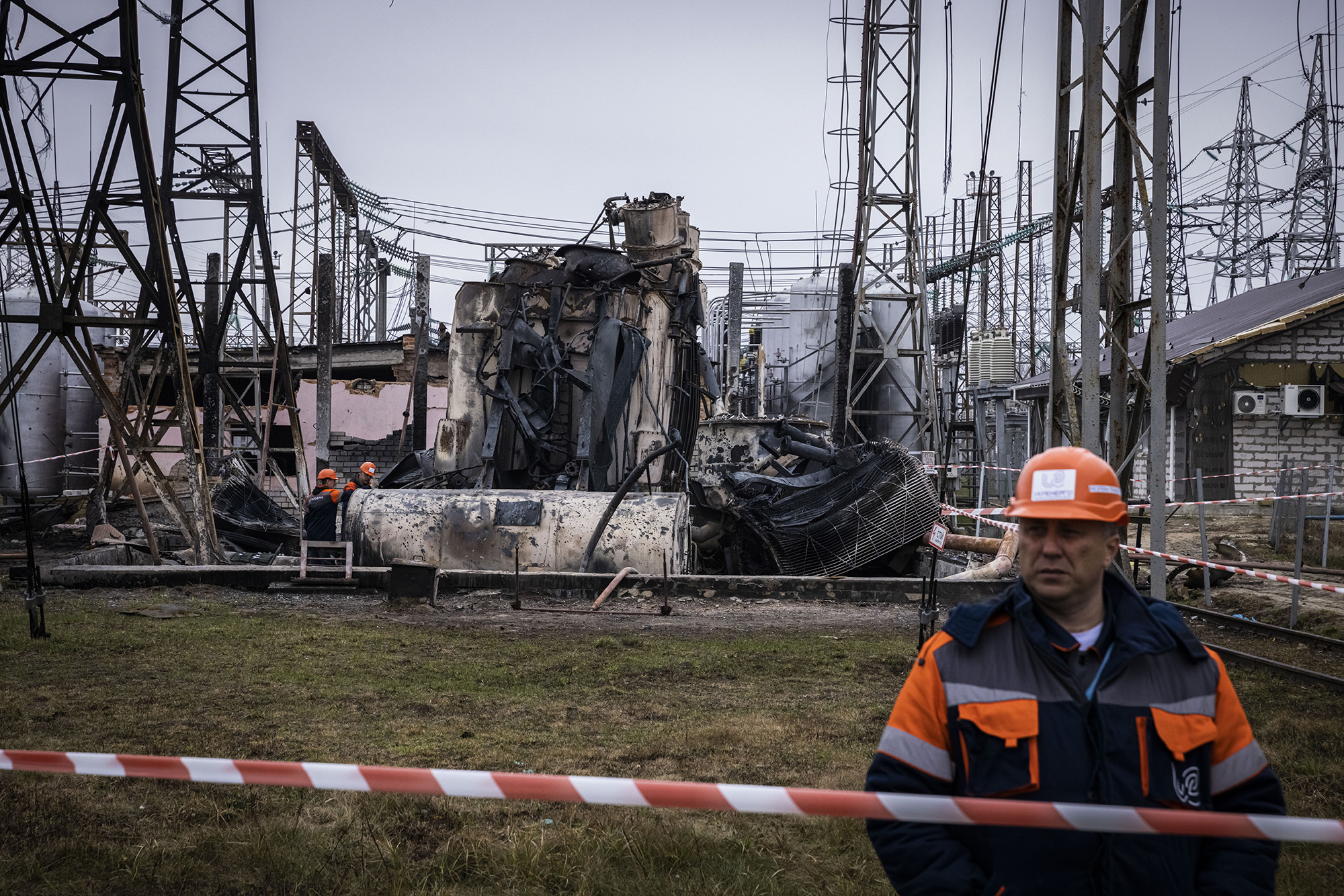
A leading international energy organization coordinating efforts to help Ukraine’s energy grid withstand repeated Russian strikes has urged European energy companies to donate more essential equipment.
Energy Community told CNN it has coordinated donations of specialized equipment since Russia invaded Ukraine in February, helping to repair damage to critical infrastructure deliberately targeted by Russian forces.
“This month, seven energy equipment shipments coordinated by the Secretariat in cooperation with the EU’s Emergency Response Coordination Center (ERCC) have reached Ukraine,” said Artur Lorkowski, Director of the Energy Community Secretariat.
“This includes much needed tools, fuses, welding electrodes, elcometers, generators and other electricity and gas equipment donated by companies from Estonia, United Kingdom, France, Italy, Sweden, Slovakia and Lithuania.”
Since the start of the war 37 shipments from 20 countries have been delivered to Ukraine, the statement said, with 47 more deliveries planned.
“Items that cannot be delivered will be procured via the Ukraine Energy Support Fund,” said Lorkowski. “The first procurement of equipment is near finalization and the emergency equipment is expected to be delivered to Ukraine shortly.”
On Wednesday Ukrainian President Volodymyr Zelensky said that six million Ukrainians were without electricity, describing the situation as “very difficult.”
“Energy workers and utility workers, all our services are doing everything to stabilize the system and give people more energy for longer,” added Zelensky.
And on Thursday morning heavy Russian shelling left the recently liberated city of Kherson in southern Ukraine without power, according to Yaroslav Yanushevych, head of the Kherson region military administration.
The request for more equipment came after NATO’s Secretary General Jens Stoltenberg said last week that foreign ministers are going to step up “non-lethal support” to Ukraine, including fuel, medical supplies, winter equipment and drone jammers.
As Russia struggles in Ukraine, repression mounts at home
From CNN’s Clare Sebastian
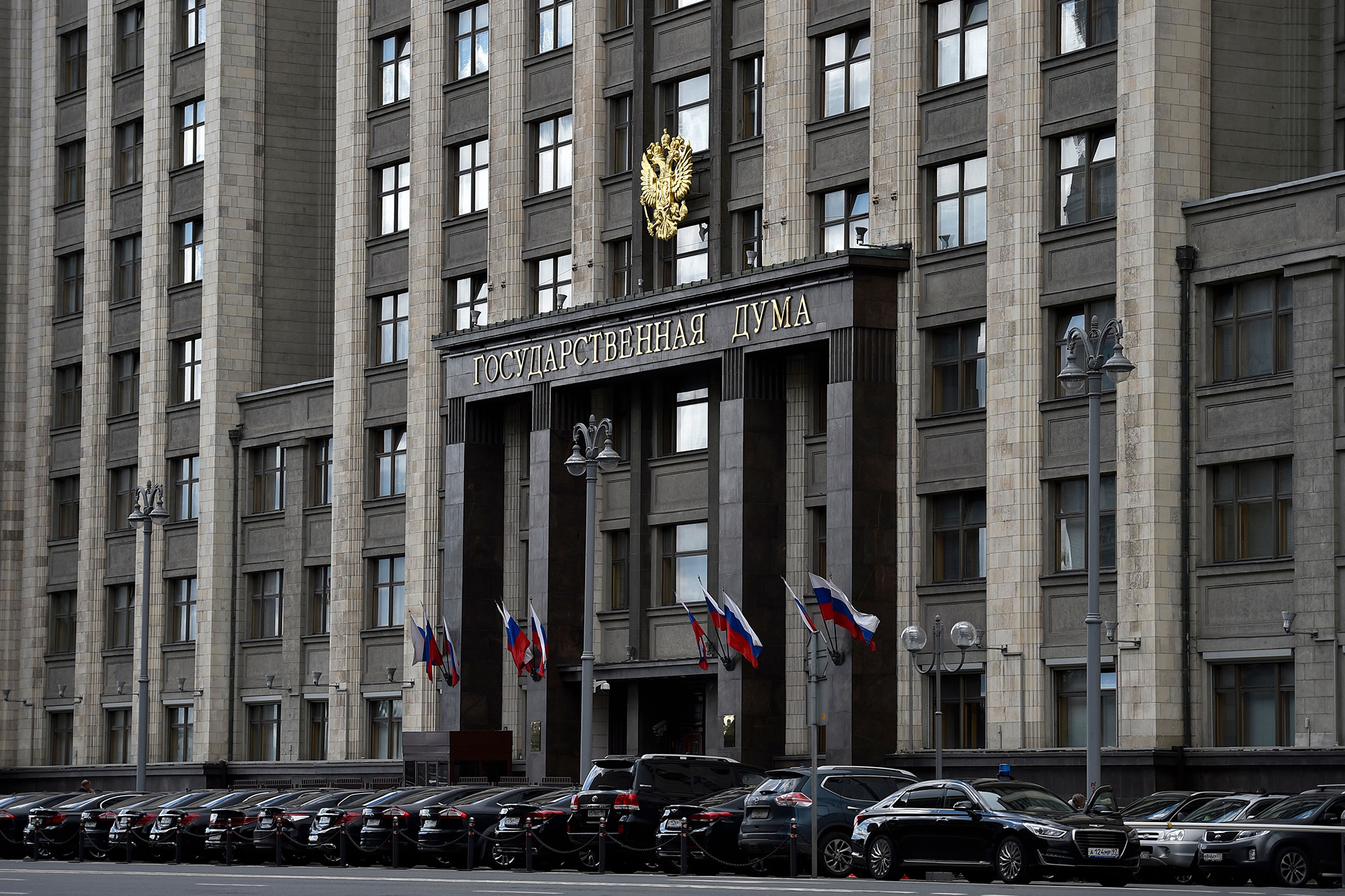
A new expanded law on “foreign agents” in Russia comes into force Thursday, signifying an intensifying crackdown on free speech and opposition under President Vladimir Putin that has accelerated as his fortunes in Ukraine have deteriorated.
It’s also further evidence of Russia’s determination to root out what it sees as Western liberal values, coming in the same week Russia’s parliament sent a bill expanding a ban on what it calls “propaganda” of LGBT issues to Putin’s desk.
The 2012 law on Foreign Agents, passed after a wave of public protests against Putin’s return to the presidency, required organizations engaging in political activity and receiving funding from abroad to register as foreign agents and adhere to draconian rules and restrictions.
That law has been gradually updated since then, forming the backbone of an ever tighter stranglehold on civil society in Russia over the past decade. From Thursday that definition is expanded to include not only individuals or organizations receiving funding from abroad but those who have “received support and (or) is under foreign influence”.
Further reading of the law does not offer much in terms of clarification. “Support” by foreign sources is defined not just as financial but “organizational and methodological, or scientific and technical help.” “Influence” can be read, according to the law, as “exacting an influence on an individual by coercion, persuasion or other means.”
This is the point, says Konstantin Von Eggert, a freelance Russian journalist now living in Lithuania. Laws like this that make up what he calls “Putin’s repressive system” are designed to be broad and vague, and selectively applied so as to “scare and paralyze.”
Read more here.
Emergency power outages in Zaporizhzhia
From CNN’s Josh Pennington
Emergency power outages have been imposed in Ukraine’s southern Zaporizhzhia region on Thursday, according to state-owned energy provider Ukrenergo.
A statement from the company said the move was due to “significant exceeding of electricity consumption” in the region,
Power would be restored when “consumption stabilizes,”it added.
Analysis: Putin’s winter of inhumanity takes Ukraine war and US aid to a new level
Analysis from CNN’s Stephen Collinson
By bombing the power grid meant to sustain Ukrainians through dark, cold months, Vladimir Putin is inflicting some of the most barbaric wartime conditions experienced by civilians in Europe for decades.
The use of winter as a weapon of war is designed to break the will of a nation that has humbled Russian forces — and to test the generosity of Western publics footing the bill for Ukraine’s defense. And it is forcing President Joe Biden and other leaders to make another round of adjustments to the lifeline of armaments and aid sustaining Ukraine’s resistance.
The intensity of Moscow’s deliberate targeting of civilians has also revived questions over if and when the world should press for a diplomatic end to the war as well as a rising domestic political debate about how long multi-billion dollar aid must last. This pressure, notably inside the incoming Republican House majority, often spikes alongside Putin’s calculated spurts of nuclear brinkmanship and whenever fears rise that the war will spill into NATO territory.
These questions will be at the center of talks Thursday between Biden and French President Emmanuel Macron, the two most critical leaders of the West, who will be essential to any eventual ceasefire and who have at times differed on whether diplomacy can work with a leader as ruthless as Putin.
Read Collinson’s full analysis here.
Source: https://www.cnn.com/europe/live-news/russia-ukraine-war-news-12-01-22/index.html








